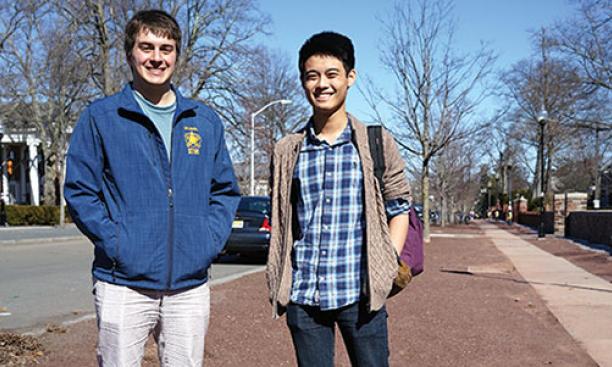

Results were expected in early April of a student referendum on a proposal to end bicker at the selective eating clubs in four years.
The referendum — which supporters said was the first time students had ever voted on the issue — was scheduled by the Undergraduate Student Government after a petition drive by Joseph LoPresti ’15 and Ryan Low ’16 received the 500 signatures needed.
The movement, dubbed “Hose Bicker,” would direct the USG to establish a committee to “facilitate ending bicker.” While the eating clubs are separate from the University, and the committee would have no formal power to mandate that the clubs end bicker, Low and LoPresti hope that if passed, the referendum would show the will of the student body and pressure the selective clubs to make changes.
The current system “breeds a culture of elitism and needless selectivity,” LoPresti said.
A Daily Princetonian editorial described bicker as “a complex and contentious issue” but said a referendum seeking a discussion of bicker, rather than its end, would have been preferable. A Prince column by Barbara Zhan ’16 said the campaign failed to understand bicker’s necessary role in “foster[ing] a community of people with similar interests.”
Many students were dismissive of the campaign or viewed the proponents as “a bunch of people who are sad because they got hosed,” LoPresti said. He and Low both bickered unsuccessfully. Low is now a member of the 2D dining co-op, and LoPresti is a member of Colonial Club.
As students prepared for spring break in the middle of March, public debate on the issue seemed muted. But many students had firm opinions on the campaign.
Nick Sexton ’17, a member of Cap and Gown, was one who signed the petition. “I had many friends who didn’t get in who I think deserved to get in,” he said. “I don’t think it’s a very healthy process.”
Sexton acknowledged that it was unlikely the referendum would change anything. “I think that the reason a lot of people are signing it is more to protest bicker than affirm that the alternatives are good,” he said.
Peter Miller ’17 said that with 11 eating clubs, “you’re sure to fit in somewhere. Whether or not you get hosed from one, there’s going to be another where you have friends.”
Alexander Lee ’17 said the current system allows freshmen to “find your group of people. ... It’s cool being able to go join that and obviously it sucks when people can’t get in, but that’s life.”
